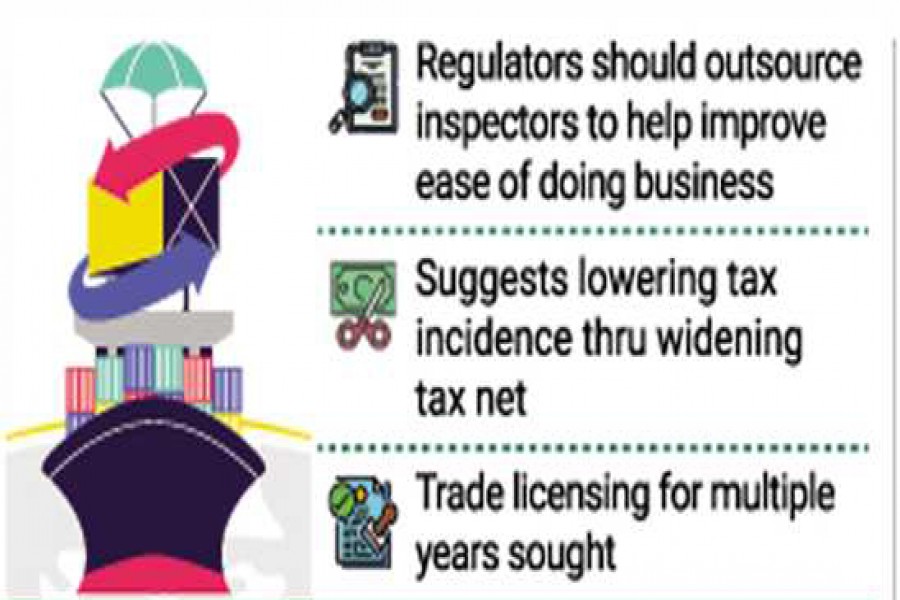A leading chamber says trading with India through currency swap with the rupee instead of the US dollar is not easy for the cardinal reason that it is not in the IMF currency basket.
Currently, the basket of the International Monetary Fund consists of five trading currencies-the U.S. dollar, the euro, the Chinese renminbi or RMB, the Japanese yen, and the British pound sterling.
"Currency swap between taka and Indian rupee is not an easy matter," the Metropolitan Chamber of Commerce and Industry, (MCCI) Dhaka told journalists Saturday, citing the rupee status.
President of MCCI Md. Saiful Islam, however, said there is a need for government-to-government discussion and then central bank-to-central bank negotiations to make it happen.
Exchanging views at a luncheon meeting at the chamber headquarters with the city's media outlets the chief of Bangladesh's oldest trade-promotion organisation felt that trading with India through rupee and China through RMB will give the reserves comfort as both the counties are large trading partners of Bangladesh.
It had first proposed the idea to the governor of Bangladesh Bank.
China usually is the biggest trade partner followed by India.
The MCCI noted that the control of imports might affect the overall trade, as some importers are facing troubles even while importing capital machinery.
The MCCI also noted that Bangladesh was likely to lose between 8.0 and 13 per cent of trade advantage after 2026 when Bangladesh will no more enjoy trade benefits as a least- developed country.
But it opined that there are many opportunities that will be also there after graduation.
"To my mind, our country rating will be enhanced and image, among others, will be broadened after the graduation," Md Saiful Islam said about the dividend that the country may reap following the change of status.
The business leader also felt that Bangladesh could compensate for at least 5.0 per cent of the erosion in export earnings by improving its efficiency in the manufacturing sector.
Erosion can also be compensated if there is no political instability and social unrest or overall peace and stability prevail.
Giving an example of MFA in the early 2000s, the MCCI chief said that many believed that the clothing industry would collapse after the withdrawal of the multi-fibre agreement.
"But, most interestingly, RMG started thriving since 2005 when the MFA was discontinued."
The chamber suggested that many regulators now need outsourced inspectors to provide efficient services to businesses, indicating that there has been lacking in rearing necessary managerial manpower, thus necessitating the hiring of foreigners for many industries, specially the export sectors like apparel.
"We have to wait for many months, even years, for inspectors as the regulatory bodies lack the inspectors."
He says the bodies can outsource the inspectors and it will improve the ease of doing business.
To underpin his suggestion he cited as an example that Indian Prime Minister Narendra Modi had introduced such outsourcing for its aged-old office of broiler inspector in India.
The MCCI points out that lead time in export shipment is rising and needs to be improved. A 17-percent improvement in logistics will help improve 7.0 per cent of the economy.
Mr Islam mentioned that they have been working with the revenue board for widening the tax net.
Economic analysts are critical of tax-loads on limited taxpayers instead of casting the tax net wider to bring new ones and thus lower the tax incidence.
"We are in favour of lowering the tax rate and widening the tax net."
He said MCCI achieved success in framing a uniform 12-percent corporate tax for all export-oriented industries. Earlier, RMG only used to enjoy it.
The metropolitan chamber urged the authorities concerned to extend the tenure of trade and other licences to at least five years from the existing one year in order to reduce the cost of doing business and eliminate hassles.
"It will ease the process of doing business," Mr. Islam told the journalists.
He said businesses get trade licences quite easily from city corporations but face hassles in getting licences from outside city corporations.
MCCI Vice-President Habibulllah N Karim said: "We want licences for multiple years.
If the government issues licences for multiple years, it will save time for both private and public sectors."
He said many foreign embassies offer multiple visas in order to make it hassle-free.


